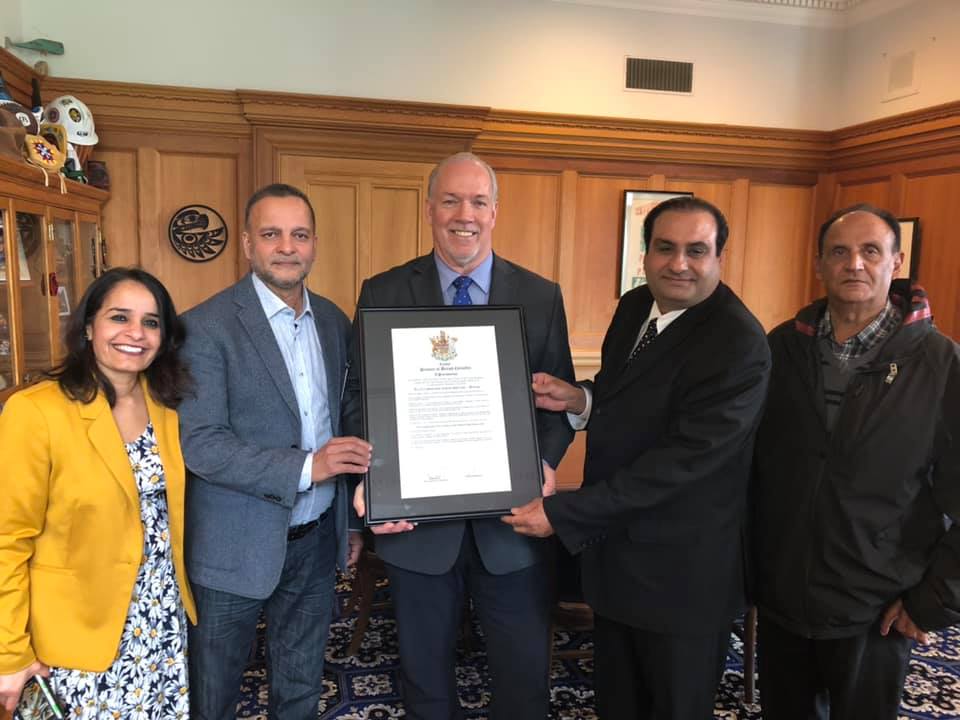An estimated 1,000 people died in Amritsar, Punjab a century ago, and thousands more were injured.

They were peacefully protesting the arrests of two activists, and celebrating the festival of Vaisakhi in Jallianwala Bagh — a walled public garden in Amritsar — on April 13, 1919.
History would remember the day as a massacre.
British acting brigadier-general Reginald Dyer didn’t wait to see if the protest would escalate into violence. Instead, he ordered his troops to fire repeatedly into the enclosed space filled with thousands of men, women, and children.
Some jumped down wells to escape the gunfire and drowned. Others tried to scale the walls to get away.
The bullet marks on the stone walls are there to this day.
The event marked a pervasive shift in the Indian independence movement — and it’s still a traumatic historical experience for South Asians today, including in the diasporic community in British Columbia.
With that in mind, Surrey-Green Timbers MLA Rachna Singh campaigned with activist groups for the provincial government to commemorate the centennial of the massacre.
WATCH: Orange Shirt Day recognizes residential school survivors (2018)

Singh said with such a large South Asian population in B.C., it’s important to recognize the event.
“I think this is huge. Not just for a person like me who has her roots in the Indian subcontinent, but for everybody in Canada to be taking pride in this, like how far we have come,” Singh said.
Singh said Canada has a record of working on decolonizing and acknowledging its past — and she thinks the U.K. could stand to learn a lesson or two from its former colony.
British Prime Minister Theresa May expressed regret in parliament Wednesday for the massacre, but stopped short of offering a formal apology.
Singh said May should look to Canada as an example.
“Apologizing for Komagata Maru, that was huge for us,” Singh said. “And I think taking that example, the British parliament should also do the same. I think it would go a long way in the reconciliation process.”
Singh said commemorating the event in Canada isn’t just important for South Asian Canadians — it shows Canada’s stance on violence anywhere in the world.
“Such recognitions are not only important to decolonize our minds, but also to understand the relevance of such historic incidents under current circumstances. While we must keep our history alive, we also need to stand up against state-sponsored brutality anywhere in the world,” Singh told the B.C. Legislative Assembly on Thursday.




Comments